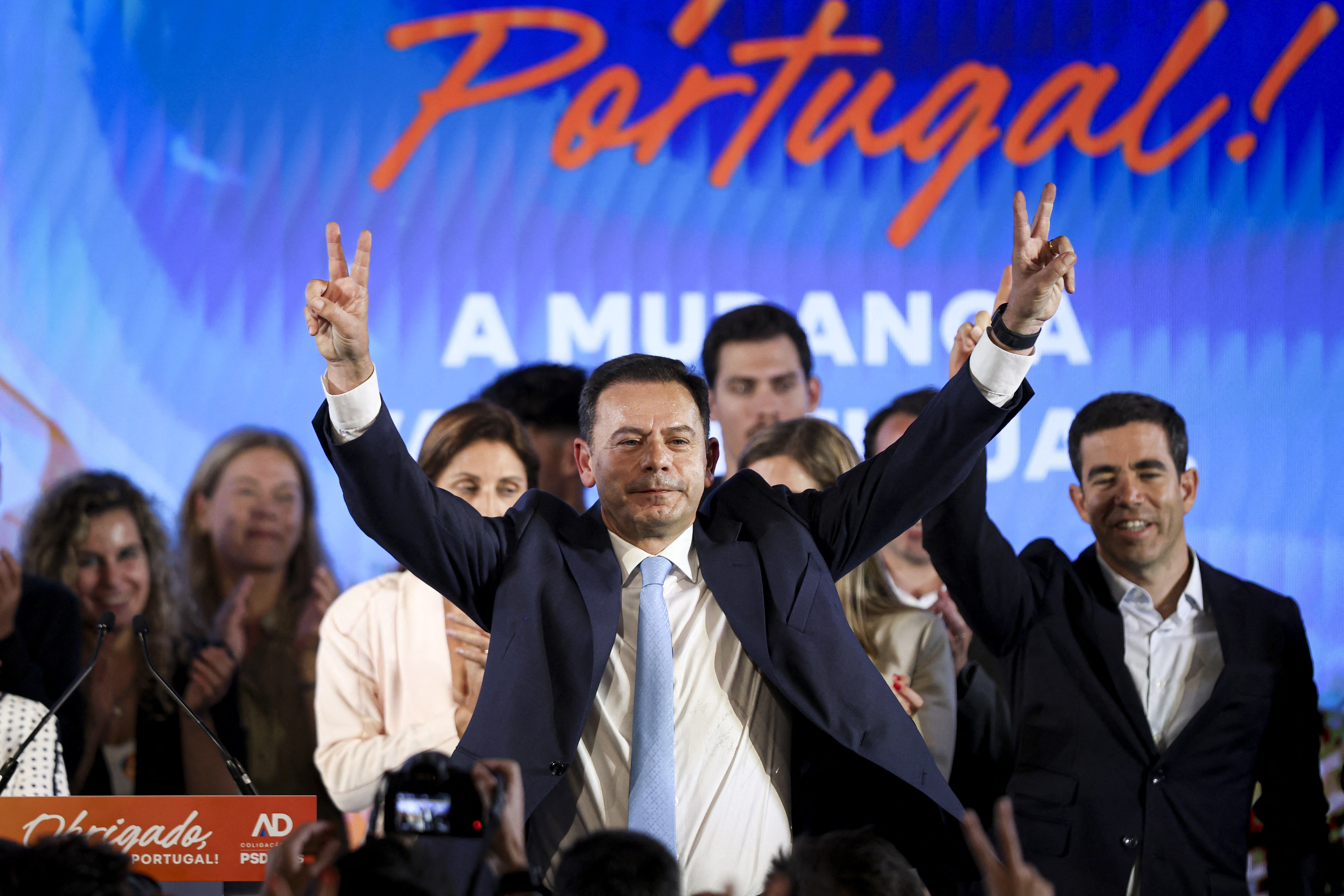
LISBON - The center-right Democratic Alliance, led by incumbent Prime Minister Luis Montenegro, won the most seats in Portugal's parliamentary elections Sunday, according to official results.
However, the alliance, garnering 32.1 percent of the vote, or 86 seats, fell well short of the 116 seats needed for a majority in the 230-member parliament to form a government on its own.
According to the latest data from the Ministry of Internal Administration, the Socialist Party placed second with 23.38 percent of the vote, securing 58 seats. The far-right Chega ("Enough") party followed closely with 22.56 percent, also winning 58 seats.
ALSO READ: Portuguese parliament rejects confidence motion, forcing government to resign
Immigration policy, the cost-of-living crisis, and housing were the dominant issues in this election, sparking widespread public debate. Polls indicated a sharp rise in voter concern over political stability and economic well-being.
Portugal is a parliamentary republic with a unicameral legislature of 230 members, elected by direct vote to serve four-year terms. On March 13, President Marcelo Rebelo de Sousa dissolved parliament and called a snap election for May 18, marking the country's third early parliamentary election in less than four years.
Founded in 2019, Chega was initially viewed as a fringe party due to its radical rhetoric and anti-establishment stance. In just six years, it has grown from a single seat in parliament to 58, entering the political mainstream.
ALSO READ: Portugal's government faces likely defeat, fresh collapse in confidence vote
The party tapped into widespread frustration with the traditional political parties, especially around persistent issues like housing shortages, an overstretched public healthcare system, and recurring corruption scandals.
Chega has drawn strong support from conservative voters with its hardline positions on immigration, public security, and national identity.
Since Montenegro has ruled out a coalition with Chega, the party is now expected to lead the opposition. However, with Chega now holding a significant number of seats, governing without its support will be a major challenge.
READ MORE: Portuguese head to polls as right, left seen almost evenly matched
President Marcelo Rebelo de Sousa has also voiced strong opposition to far-right parties participating in government, adding further uncertainty to the formation and stability of the next administration.


